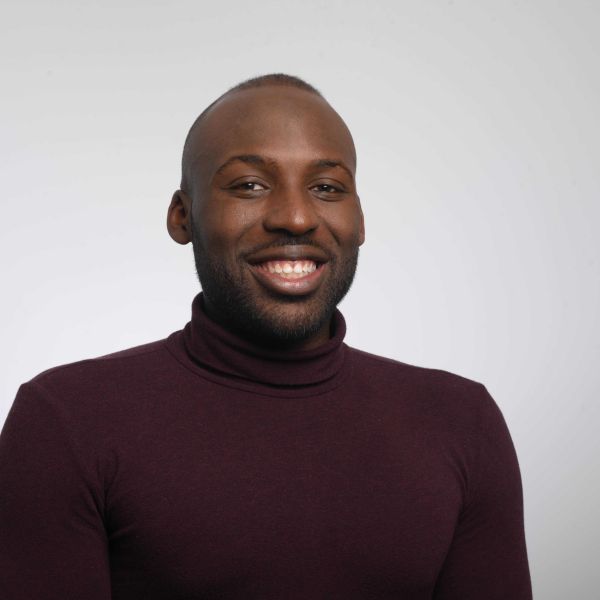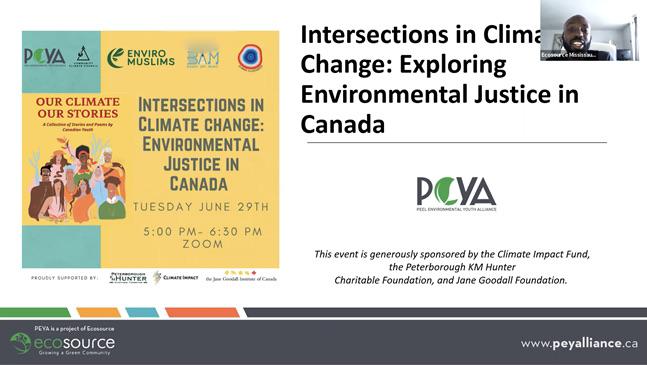Image

Jason facilitates environmental education workshops for intergenerational audiences on interconnections of economic systems, the environment, and human well-being.
How are you using education to build more sustainable and equitable communities?
As the Youth Program Facilitator at Ecosource, I coordinate the Peel Environmental Youth Alliance (PEYA) project. I am responsible for the program development and delivery of events for the Peel community. I host monthly environmental education webinars aimed at youth and adults to increase intergenerational conservation related to the environment. Participants in our program learn from environmental experts and organizations to strengthen their climate change/environmental literacy and communicate those problems locally. Past webinars include plastic pollution, sustainable cities, COVID and climate, green careers, and environmental justice.

As the Policy Specialist for the Community Climate Council, I work with the Research and Education team to develop and execute strategies to increase environmental awareness and climate literacy in the Peel Region. I am also one of the founders of Gradient Spaces, a space for 2SLGBTQIA+ people passionate about making tech a more equitable space. We gather passionate people with a wide range of perspectives and expertise who are ready to connect and share knowledge, resources, and opportunities to address the problems they see in the tech ecosystem.
Tell us about your journey to where you are today.
I grew up in Toronto with very little green space up to Brampton, where my family lived by the protected Greenbelt area. I started to become aware of how race and class can affect access to green spaces and green infrastructure. This led me to study Business and Society at York University to learn how traditional and alternative business structures interact with different aspects of society, such as government, communities, and their effects on our ecosystem.

In my final year as an undergraduate student, I learned about ecological economics and the issues of Gross Domestic Product (GDP) used as the primary measure of well-being; this piqued my interest to research it further in graduate school, where I am studying to obtain a Master’s degree in Environmental Studies at York University.
I explore a socio-ecological approach to measure progress for Ontario's transition to a green economy. During this time, I also present environmental education materials through workshops and guest lectures. These opportunities highlight the importance of using other mediums to communicate environmental/sustainability issues among different demographics, recognizing that everyone interprets information differently.
What keeps you hopeful for the future?
What keeps me hopeful is working with middle and high school students and seeing how they’re not only knowledgeable about climate change issues, but they take that understanding of climate change and become leaders to make a change in their communities.
Who do you look up to as inspiration?
Dr. Cornel West has always been an inspiration to me since I was young; his conversations on race and class within our current societal system and the need to dismantle it was one of my main motivations to pursue a career in this space.
If you could have one superpower, what would it be?
If I could have one superpower, it would be to control the weather like X-Men's Storm. She is one of my favorite comic book heroes.